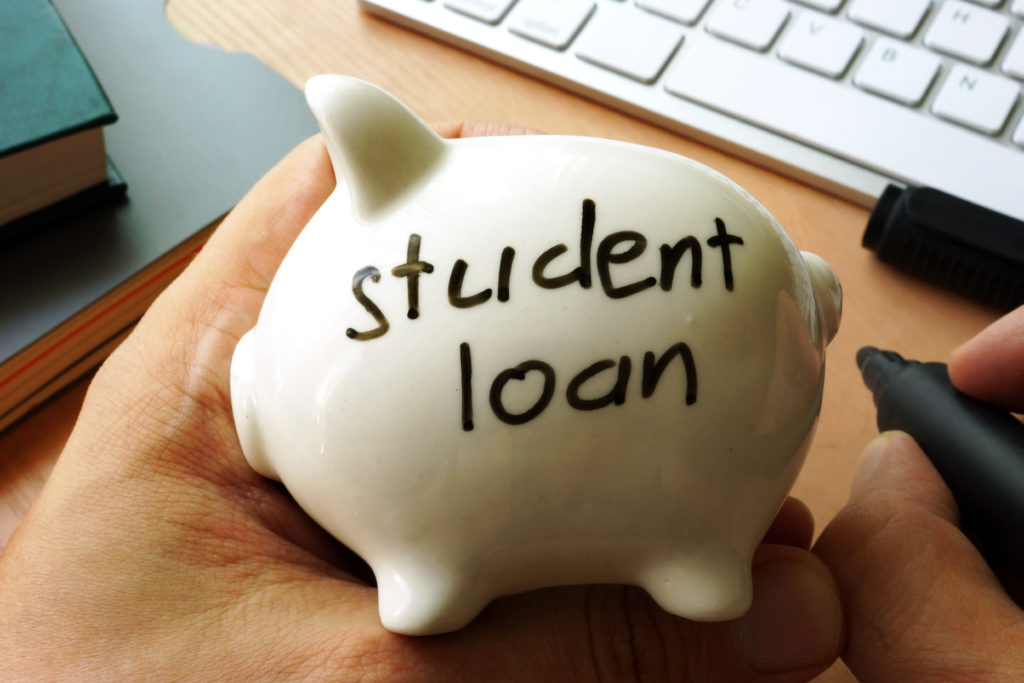Student Loan Debt Statistics
Average student loan debt : $28,400.
Percent of student loan holders: 44%.
Rate of default: 11% (for those who have not paid off their loans within two years).
The average student loan holder knows that they have a significant amount of student loans. However, the average student loan holder wishes they knew how much interest has accumulated on their loans since graduation.
What are Private Student Loans?
Private student loans are non-federal loans taken out by a borrower. Private lenders offer these loans, which often have higher interest rates than federal student loan options. Also, private lenders may require credit checks and co-signers for the loans.
What are Federal Student Loans?
Federal student loans are the type of loan that most people use to pay for school. The federal government offers these types of loans, which have low interest rates and flexible repayment options.
What is an Interest Rate?
An interest rate is how much you will need to pay to borrow money from someone else or a lending company. The percentage that your lender charges you when you want to borrow money depends on many factors such as current market conditions, what type of security they can get if you don’t repay them.
What is the average student loan interest rate?
The average student loan interest rate is six percent.
What is the average time it takes someone to pay off student loans?
It takes an average of 25 years to pay off student loans.
How much does the average student loan holder owe?
The average student loan holder owes over $30,000.
What is the most common type of job for a person with a bachelor’s degree?
34% of employed individuals have jobs in the field related to their major. The most popular employment opportunities are managers and supervisors.
How many were college graduates from 2015 underemployed?
44%. In other words, 44 percent of all graduates either had part-time or temporary positions requiring less than a bachelor’s degree last year. Those who weren’t underemployed worked as retail salespeople while others held office administration positions such as administrative assistant or receptionist positions.
How to get out of Student Debt Fast:
Create a Budget
A budget allows you to have control over your money. Most importantly, you get to choose how you want to save, spend, and invest your money.
Knowing the different types of loans and repayment plans available to you can
Knowing different types of loans and repayment plans can help reduce your overall debt. But, you should also know that on some loans, paying an extra $25 per month could shave hundreds or thousands off your total interest payments!
Lastly, if you’re struggling with student loan repayments—don’t give up hope just yet! There are options out there for those who find themselves in this situation. First, visit our Student Loan Repayment page so we can walk through things together.
Taking control of your finances – make a budget and stick to it!
Make sure you have created a monthly income plan for yourself that includes student loan repayments and fixed expenses such as rent, groceries, etc. You can find out more about how to do this in our Financial Management articles.
Paying in advance saves money in the long run.
You can even save money on your loan repayments by paying in advance. This is because you will then be charged less interest, reducing the overall cost of repayment. You should aim to spend at least one or two months’ worth of reparations, just so that if you missed payment for any reason, it would not compound into an unmanageable amount due later on down the track!
Know what’s going with the servicing company responsible for collection and contact them immediately if issues do arise! Your servicer has all sorts of tools available to help get you back onto your feet financially, so don’t hesitate to contact them. They may have been able to help other struggling borrowers—so they might offer assistance with this.
Learn how much money is applied from each paycheck towards your loans.
Know how much money is applied from each paycheck towards your loans. This will help you determine whether or not you have enough cash at the end of the month for essentials such as rent, groceries, other household expenses, etc.
Lastly, if you’re struggling with student loan repayments – don’t give up hope just yet! There are options out there for those who find themselves in this situation. First, visit our Student Loan Repayment page so we can walk through things together!
Knowing what’s going on with the servicer responsible for collection- contact them immediately if issues arise! Your servicing company has all sorts of tools available to help get back onto their feet financially, so don’t hesitate to contact them.
Check in with your lender periodically for updates on interest rates, fees, etc., so you’re constantly updated on any changes.
Periodically check in with your lender to get updates on interest rates, fees, and other changes that can affect the borrower, so they are always up to date.
Lastly, if you’re struggling with student loan repayments – don’t give up hope just yet! There are options out there for those who find themselves in this situation. Visit our Student Loan Repayment page so we can walk through things together! We’re here to support you every step of the way throughout repayment and beyond.”















